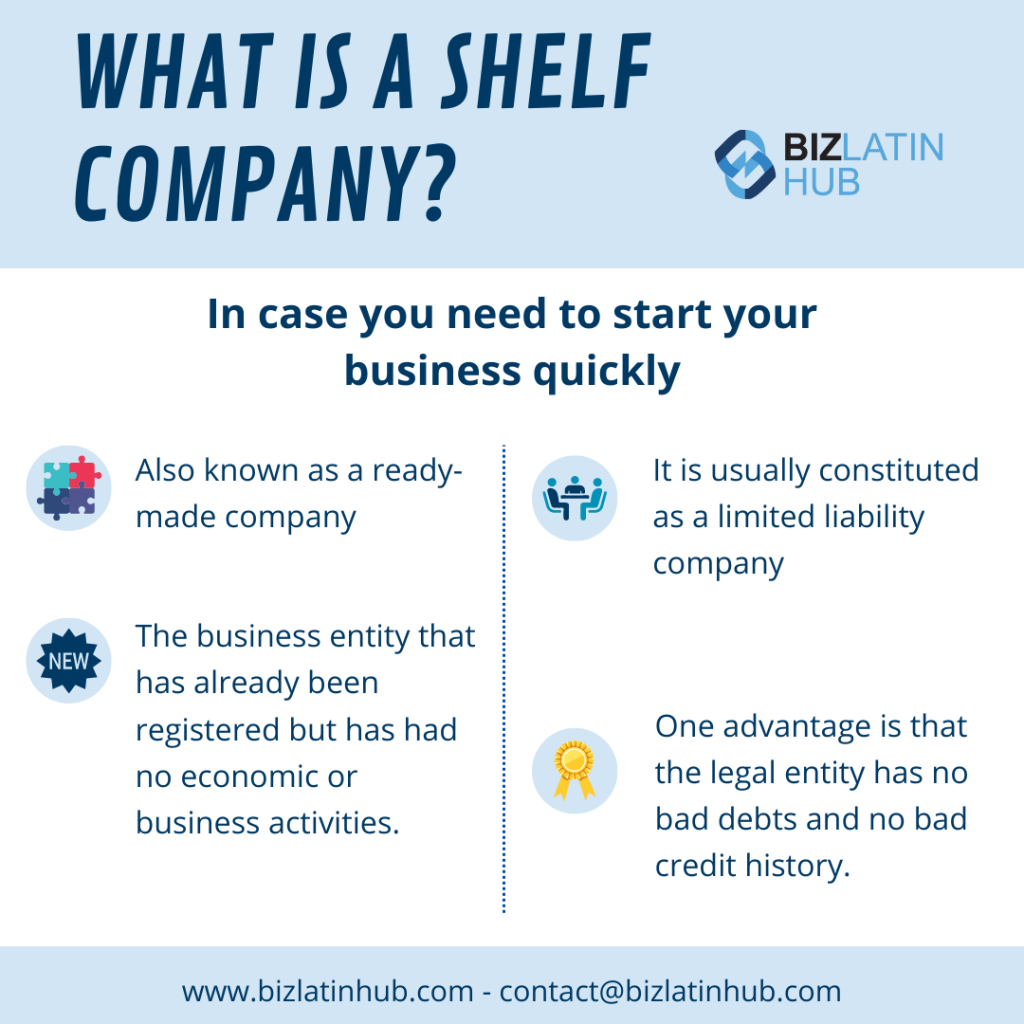Argentina offers a dynamic and vibrant business environment, making it an exciting destination for foreign investors. Its rich cultural heritage, diverse markets, and strategic geographical location create ample opportunities for business growth and expansion.

Embracing the thriving potential of this growing marketplace can be achieved through various avenues, and one compelling approach is by acquiring shelf companies in Argentina. By obtaining these pre-established entities, investors can bypass the time-consuming process of starting from scratch and swiftly enter the business landscape.
Argentina’s allure as a business destination is further bolstered by its progressive policies that foster a conducive enterprising environment, the government’s increasing emphasis on innovation and technology-driven industries, and the steadily expanding consumer base that presents lucrative opportunities for market penetration and growth.
This combination of factors positions Argentina as an exciting and promising hub for business ventures, attracting forward-looking business people eager to make their mark in South America’s economic powerhouse.
In this article, we will outline why shelf companies in Argentina are an attractive option for business owners, including the legal requirements for company formation in Argentina.
What is a shelf company?
A shelf company is a registered entity that has remained inactive with no business operations, assets, or debts. It exists solely as a legal entity, waiting to be acquired by a prospective buyer. In the past, obtaining a company quickly involved purchasing a shelf company rather than going through the time-consuming process of registering a new one.
How to buy shelf companies in Argentina
If you wish to purchase a shelf company in Argentina you are required the provide the following information:
- Criminal background checks for all shareholders.
- Letters of recommendation from two local banks for each candidate.
- Local verification of no bankruptcies in your place of residency.
After the completion of this process, the current owners will transfer corporate control to the buyer during a shareholders’ meeting, formally acknowledging them as the new owner. Further steps may involve changing the company’s name and address, adjusting its purpose, and appointing a new Board of Directors.
Advantages of shelf companies in Argentina
- Fast Registration
- Improved Loan Accessibility
- Proven Track Record
Here are three key benefits of acquiring shelf companies in Argentina.
1 – Fast Registration: Purchasing a ready-made company in Argentina provides immediate registration as these entities come with a clean history and no outstanding debts. Buyers can commence business activities within just 24 hours of placing an order.
2 – Improved Loan Accessibility: Shelf companies offer easier access to bank loans for investment purposes. Their established status conveys longevity and credibility, making them more appealing to financial institutions. Furthermore, owners are relieved from the administrative burden of obtaining a tax identification number and opening a bank account for the company.
3 – Proven Track Record: Shelf companies have spent time inactive, giving them an aged corporation status. As a result, they have no bad debts or negative credit histories, providing a solid foundation for future business ventures.

Disadvantages of shelf companies in Argentina
- Liabilities Transfer
- Share Transfer System
- Risk of Fraud
The following are some major risk factors associated with purchasing shelf companies in Argentina.
1 – Liabilities Transfer: When buying a shelf company, be aware that its existing and future debts will transfer onto you as the new owner. Consequently, getting a new loan may be complicated, as previous loans must be settled. Banks closely analyze the financial history and creditworthiness of companies before approving loans. However, shelf companies have minimal trade, tax, and income records, making it hard to assess their creditworthiness.
2 – Share Transfer System: Depending on company regulations, firms can undergo periodic reviews and require changes in ownership. While some of these transactions may go unnoticed, they can surface in the future, causing complications. For this reason, it is necessary to engage in the process of selling the shares of the old company. If any tax or revenue-related discrepancies arise from the previous shareholders, the current owners will be held accountable and required to settle the liabilities. The former partners and team members will be unaffected as the company has transferred to new management, who assume responsibility for any tax or scam-related consequences associated with acquiring a shelf company.
3 – Risk of Fraud: Be cautious when purchasing shelf companies because scams exist. There is a risk of paying a substantial amount for a company that may not hold its claimed value. When buying a shelf corporation, you must exercise caution and make sure the seller is trustworthy.
To avoid these issues, we recommend partnering with a local expert in acquiring shelf companies in Argentina.
Biz Latin Hub can help you form shelf companies in Argentina
Biz Latin Hub is an excellent partner for companies looking to enter the Argentinian market. With our extensive presence in Argentina, we boast a team of proficient bilingual corporate support specialists, ready to provide tailored solutions for your needs.
The range of services we offer includes company formation, accounting and taxation, legal support, hiring, and PEO services. If you are considering doing business in Argentina, Biz Latin Hub is an ideal partner for you.
Our experts have the expertise and resources to support your business throughout Latin America. To discover more about our comprehensive services and how we can contribute to your success, reach out to our team of specialists today.
If you found this article about shelf companies in Argentina interesting, be sure to explore the rest of our coverage of the region. Additionally, you can learn more about our team and expert authors.






